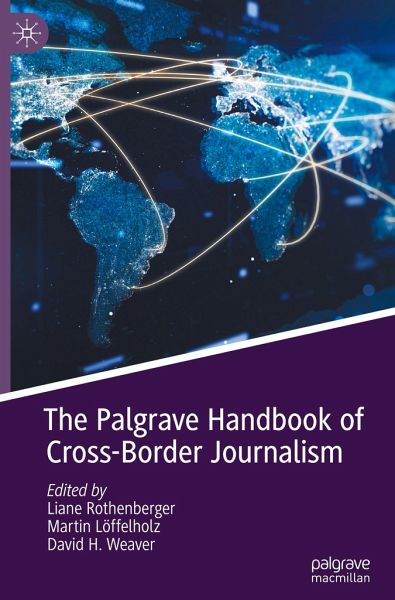
The Palgrave Handbook of Cross-Border Journalism

PAYBACK Punkte
83 °P sammeln!
This handbook critically analyzes cross-border news production and "transnational journalism cultures" in the evolving field of cross-border journalism. As the era of the internet hasfurther expanded the border-transcending production, dissemination andreception of news, and with transnational co-operations like the European Broadcasting Union and BBC World News demonstrating different kinds of cross-border journalism, the handbook considers the field with a range of international contributions. It explores cross-border journalism from conceptual and empirical angles and includes perspectives ...
This handbook critically analyzes cross-border news production and "transnational journalism cultures" in the evolving field of cross-border journalism. As the era of the internet hasfurther expanded the border-transcending production, dissemination andreception of news, and with transnational co-operations like the European Broadcasting Union and BBC World News demonstrating different kinds of cross-border journalism, the handbook considers the field with a range of international contributions. It explores cross-border journalism from conceptual and empirical angles and includes perspectives on the the systemic contexts of cross-border journalism, its structures and routines, changes in production processes, and the shifting roles of actors in digital environments. It examines cross-border journalism across regions and concludes with discussions on the future of cross-border journalism, including the influence of automation, algorithmisation, virtual reality and AI.














